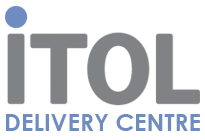The Development Company is committed to providing equal opportunities for all employees and we are opposed to all forms of unfair or unlawful discrimination.
We recognise the contribution that each individual can make to the business irrespective of age, gender, marital status, family status, sexual orientation, race, colour, religious belief, disability, political opinion and ethnic/cultural/natural origin.
The Development Company will endeavour to ensure that all of its policies, procedures and practice are in accordance with the equal opportunities policy legislation and good employment practice.
The Development Company aim to eliminate not only overt acts of discrimination but also requirements and practices which are discriminatory in nature.
We take every possible step to ensure that every individual is treated equally and fairly and that decisions on recruitment, selection, pay, terms and conditions, learning and development, promotion, performance management, access to benefits and termination of employment are based on objective and job related criteria.
All staff will be given an equal opportunity to develop and demonstrate their capability and potential. Career opportunities will be available equally to everyone and will be based solely on merit. At The Development Company we will not discriminate or be subjective or biased in our approach.
All instances and acts which are in breach of this policy will be taken seriously and will be investigated thoroughly and fairly. All internal processes, procedures and systems involving employees are designed to ensure that there is no bias against candidates on the grounds of age, gender, marital status, family status, sexual orientation, race, colour, religious belief, disability, political opinion, ethnic/cultural/natural origin and whether or not they are members of a trade union.
Our policy when training and developing people is to:
- Provide training which accurately reflects current equal opportunities legislation.
- Utilise best practice approaches and techniques.
- Ensure that handouts, training tools and examples used do not stereotype or suggest any tendencies in any group or sub-group.
- Challenge mindsets of delegates in the areas of statements about gender, race, age, marital status, family status, sexual orientation, colour, religious belief, disability, political opinion and ethnic/cultural/natural origin.



